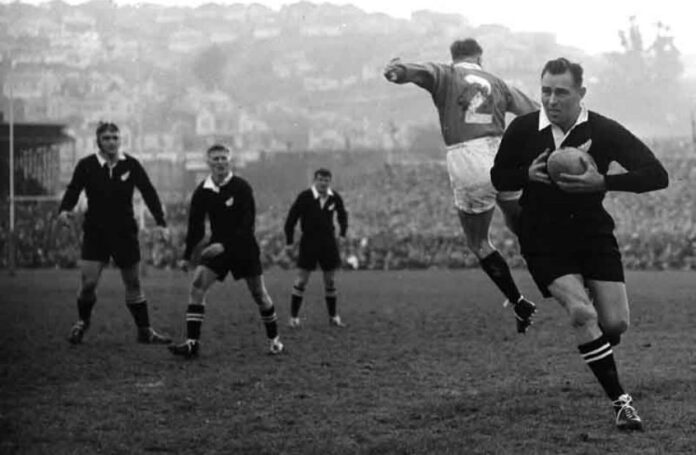For every sports fan out there, the culminating point of 2023 was supposed to be the summer Olympics in Tokyo, but due to the pandemic, the Olympic Games will happen next year. That would hopefully be a starting point after this disastrous year, and not only sports fans will look forward to that. It could be a surprise to some that rugby sevens will be one of the disciplines in the Olympics, but if that is the case, we encourage giving it a chance. This sport is, in fact, an old one with a quite interesting background. Its origins are in a school in Warwickshire, England, in the year 1823. It occurred during a game of football, a real legend, named William Webb Ellis, for reasons unknown, chose to grab the ball with his hands and run toward the opponent’s goal. Given how long ago this transpired, concrete evidence of this event doesn’t exist. Still, the Rugby world cup Trophy honors that person. In the following 50 years, many institutions and clubs came together and made a rulebook. The Rugby Football Union was born, and in 1871, the first international match occurred. Scotland won over England with a score of 1-0.

The founder of the modern Olympics, Pierre de Coubertin, included rugby in the summer Olympics of 1900. Furthermore, he was a referee and an avid fan of it. It looked like it was a good start for this sport since they drew a high crowd, but surprisingly it wasn’t a part of the Olympics in 1924. For a rugby tournament of a similar caliber, we had to wait for a long time. Only in 1987 was a Rugby World Cup held in the joint effort of Australia and New Zealand, where this exciting sport was always popular. And then in Rio de Janeiro, it came back to the Olympics, as rugby sevens were part of the summer games.
So what about the history of this sport in Poland? Coincidently, yet another Frenchman is involved. Louis Amblard was the man who brought rugby to Poland. Unfortunately, Second World War put a stop to expansion in rugby as well. The rise began again in the 1970s, but it was very difficult to develop a sport during this period. The government would hamper the evolution of sports since some players could not play because of their military history. A good example of this problem would be the 1984 FIRA Championships. Poland was playing against France, and they demanded the expulsion of several French players, considering they were members of the French army. In the eyes of the governments during the cold war, that made them a safety hazard.

Joining the European Union was a step forward for Polish rugby. Perhaps the most prominent achievement is the promotion of Polish Rugby Sevens to Rugby Europe sevens Grand Prix Series. Not to mention the opportunity to host one of these sports tours. It is an opportunity for expansion and drawing so many more people that would love the game if they had the chance. But not everything is that bright. Other sports are still much more prevalent, football is the most popular, as in most of the European countries. There are others as well, as Handball, Volleyball, and Basketball. But even American Football is a sport Rugby has to compete against. It will not be an easy task, but the spirit of this sport is to never give up upon a difficult job ahead.
An additional obstacle is a strange and unjust reputation Rugby has in Poland. A lot of people tend to think that it is not a sport for a real gentleman. They say it is attractive only to hooligans and people who want to hurt others. There is an idea that there are a lot of injuries, more than in other sports. Because of all that, it is hard to allure new players. We mentioned even American Football bringing bigger crowds. It is because of beliefs that their protective gear is guarding them against injuries, much more than the rules of the game. That is not even particularly true, as anyone who follows American Football might now. When it comes to younglings, where all love for the sports starts, parents are afraid of their kids getting injured, which is pretty intriguing, especially with the increasing popularity of martial arts and kids’ involvement in them.

As of today, there are three divisions of Rugby in Poland. The first division consists of eight teams and the second of six. That is a change from the previous arrangement, with ten in the first division and four in second. The alteration was necessary due to uneven matches between top teams and the weaker ones. As the sport is still in development, there are not enough good players for too many teams. A stimulating idea is a small regional league around Warsaw and generally around the center of Poland. It is a chance for second teams of top clubs to get to play and for smaller ones to try to compete. But Polish rugby is much more focused on rugby sevens since it gives a method to attempt to showcase this sport to the people. Every summer and spring, Polish Rugby Union will arrange one-day sevens tournaments, so-called rugby festivals, around the country. According to polandrugbyfestival.com for more information.
With time, some of the most significant problems, like the lack of coaches and equipment, will be overwhelmed.
So what awaits us in the future? Sevens are already competing against the best European teams, which is an astounding accomplishment. The fifteens, on the other hand, are still not in the second division but are getting closer. With some help from the government, the Polish rugby could be in an exceptional position for expansion. If rugby can lose its bad and undeserving notoriety, we will surely see a quite fast development of this noble sport. And just maybe, the 2023 Olympics in Tokyo could change people’s minds about this sport, even if Poland will not compete in it.
















